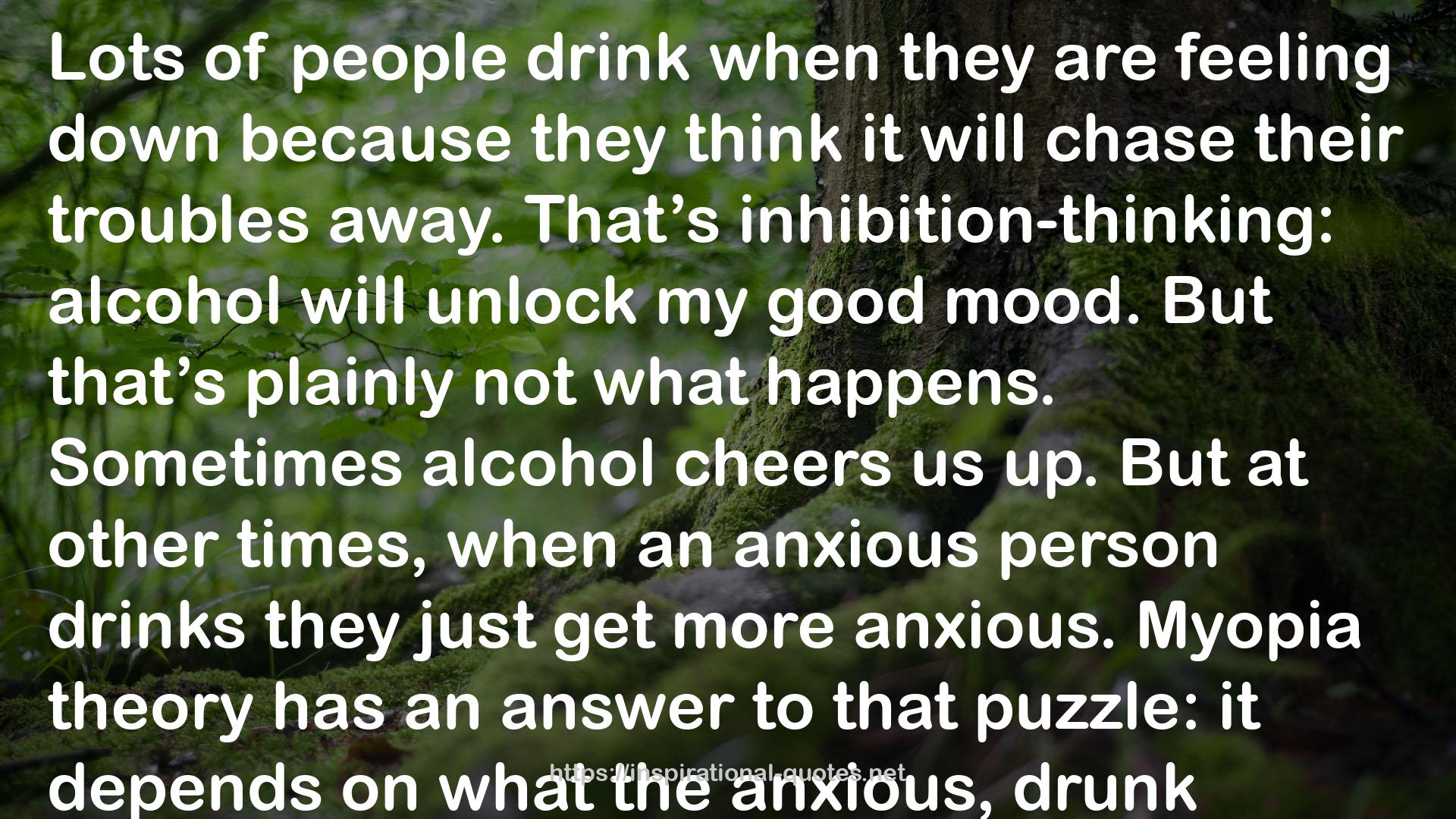71
" Sometimes the best conversations between strangers allow the stranger to remain a stranger.
We jump at the chance to judge strangers. We would never do that to ourselves, of course. We are nuanced and complex and enigmatic. But the stranger is easy. If I can convince you of one thing in this book, let it be this: Strangers are not easy.
The issue with spies is not that there is something brilliant about them. It is that there is something wrong with us.
You believe someone not because you have no doubts about them. Belief is not the absence of doubt. You believe someone because you don’t have enough doubts about them.
Those who are not part of existing social hierarchies are free to blurt out inconvenient truths or question things the rest of us take for granted.
The advantage to human beings lies in assuming that strangers are truthful.
If you don’t begin in a state of trust, you can’t have meaningful social encounters.
But remember, doubts are not the enemy of belief; they are its companion.
Our strategies for dealing with strangers are deeply flawed, but they are also socially necessary.
We tend to judge people’s honesty based on their demeanor. Well-spoken, confident people with a firm handshake who are friendly and engaging are seen as believable. Nervous, shifty, stammering, uncomfortable people who give windy, convoluted explanations aren’t.
We do not understand the importance of the context in which the stranger is operating.
When you confront the stranger, you have to ask yourself where and when you’re confronting the stranger—because those two things powerfully influence your interpretation of who the stranger is.
Don’t look at the stranger and jump to conclusions. Look at the stranger’s world. "
― Malcolm Gladwell , Talking to Strangers: What We Should Know About the People We Don’t Know
72
" On the inside, my father was terrified. The most precious thing in his life—his beloved wife of half a century—was being held at knifepoint. But I doubt very much that fear showed on his face. His eyes didn’t go wide with terror, and his voice didn’t jump an octave. If you knew my father, you would have seen him in other stressful situations, and you would have come to understand that the “frightened” face, for whatever reason, was simply not part of his repertoire. In crisis, he turned deadly calm. But if you didn’t know him, what would you have thought? Would you have concluded that he was cold? Unfeeling? When we confront a stranger, we have to substitute an idea—a stereotype—for direct experience. And that stereotype is wrong all too often. "
― Malcolm Gladwell , Talking to Strangers: What We Should Know About the People We Don’t Know
75
" The conviction that we know others better than they know us—and that we may have insights about them they lack (but not vice versa)—leads us to talk when we would do well to listen and to be less patient than we ought to be when others express the conviction that they are the ones who are being misunderstood or judged unfairly. The same convictions can make us reluctant to take advice from others who cannot know our private thoughts, feelings, interpretations of events, or motives, but all too willing to give advice to others based on our views of their past behavior, without adequate attention to their thoughts, feelings, interpretations, and motives. Indeed, the biases documented here may create a barrier to the type of exchanges of information, and especially to the type of careful and respectful listening, that can go a long way to attenuating the feelings of frustration and resentment that accompany interpersonal and intergroup conflict. Those are wise words. "
― Malcolm Gladwell , Talking to Strangers: What We Should Know About the People We Don’t Know
79
" some point over the next few hours, she left some food and water for her children in their room and opened their bedroom window. She wrote out the name of her doctor, with a telephone number, and stuck it to the baby carriage in the hallway. Then she took towels, dishcloths, and tape and sealed the kitchen door. She turned on the gas in her kitchen stove, placed her head inside the oven, and took her own life. 2. Poets die young. That is not just a cliché. The life expectancy of poets, as a group, trails playwrights, novelists, and nonfiction writers by a considerable margin. They have higher rates of “emotional disorders” than actors, musicians, composers, and novelists. And of every occupational category, poets have far and away the highest suicide rates—as much as five times higher than the general population. Something about writing poetry appears either to attract the wounded or to open new wounds—and few have so perfectly embodied that image of the doomed genius as Sylvia Plath. "
― Malcolm Gladwell , Talking to Strangers: What We Should Know About the People We Don’t Know

